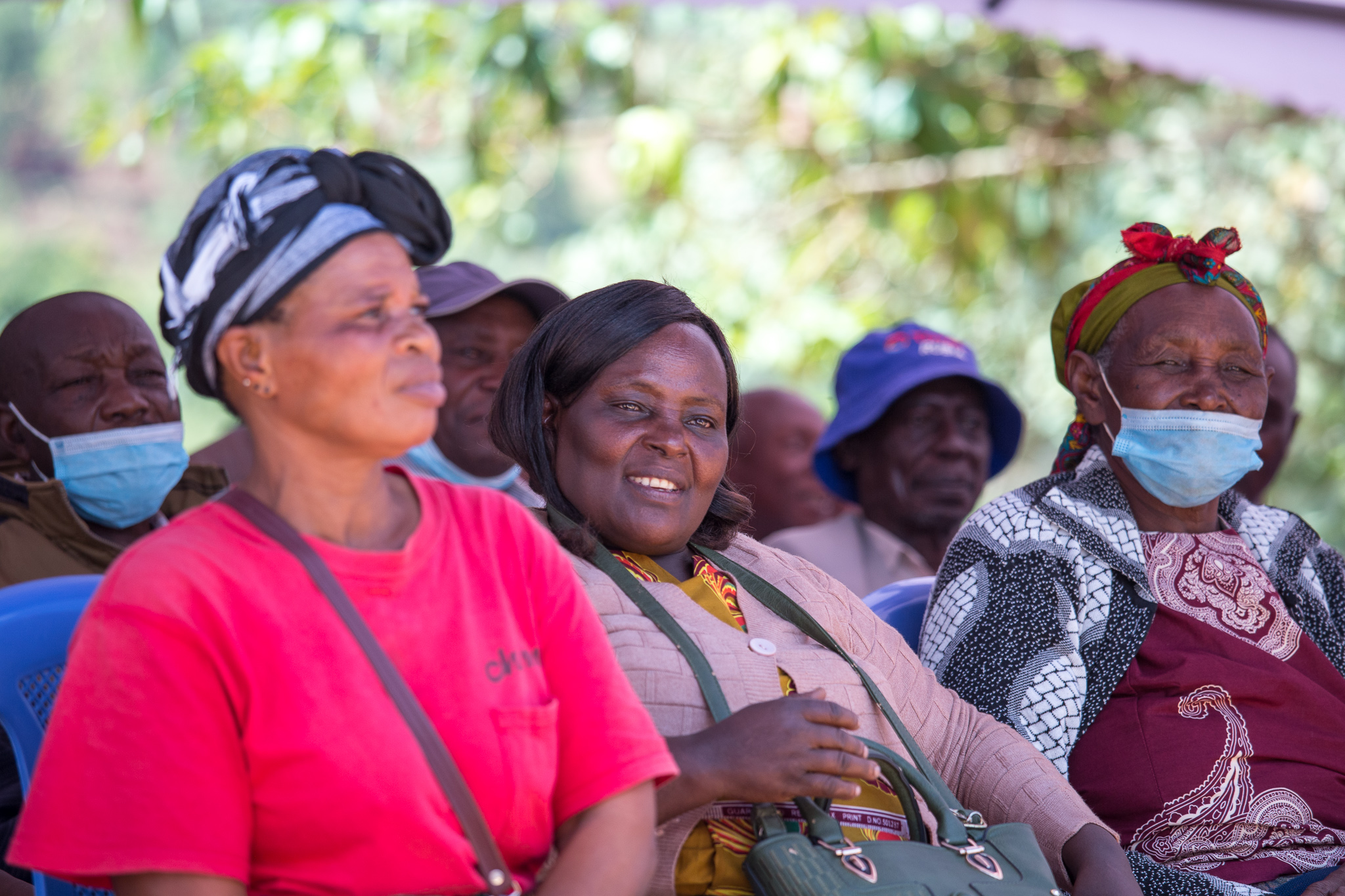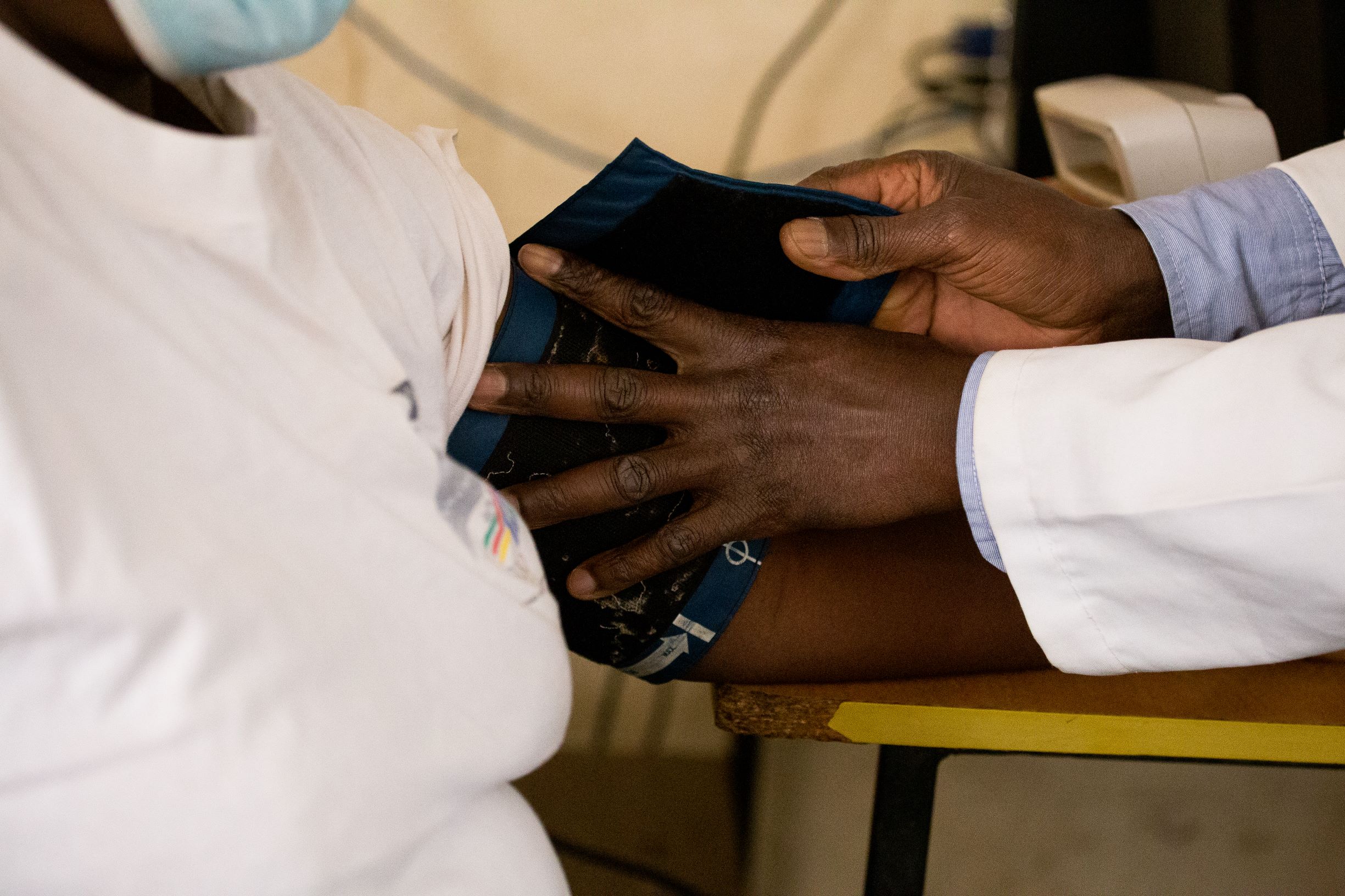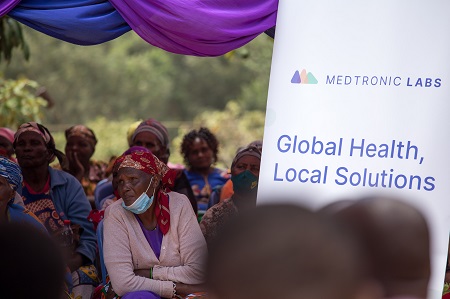Medtronic LABS’ broader scope expands access
Transformative approach seeks to bridge healthcare gaps for all

Donor-supported healthcare programs in low- and middle-income countries have historically been focused on specific diseases like malaria or maternal health, but in designing the global health system of the future, Medtronic LABS is thinking bigger than individual diseases.
The independent Medtronic-funded nonprofit is expanding to address the full spectrum of community health needs — hypertension, diabetes, mental health, malaria, TB, HIV, maternal health, and more.
“With over 5 billion people in these communities across the world lacking access to healthcare, we need health systems to look beyond addressing specific conditions and consider patients’ broader health needs,” said Anne Stake, chief strategy and product officer at Medtronic LABS. “It’s time to move away from the historical ‘verticalization’ of health systems.”
LABS, which accelerates healthcare access for underserved communities around the world through technology, has been primarily focused on hypertension and diabetes since launching in 2013.
While disease-specific programs, which Stake describes as verticals, have been successful in addressing individual diseases, they often overlook the connections between different health conditions and the overall needs of patients.
“We realized that LABS’ strength in data-driven population health adds value to a range of different conditions,” she said. “It’s a pivot away from just looking at a single condition to transforming community healthcare delivery.”
And what does that transformation look like? For LABS, it’s more data driven and responsive to patient needs.
Designed for growth
LABS has found its success in a sustainable healthcare model that pairs hyper-local services with cutting-edge technology — and that won’t change as it continues to grow.
The organization forges strong partnerships in the public and private sectors, all while connecting patients to care through a network of community health workers, who play a critical role in bridging the gap between disease verticals.
Health systems are equipped with LABS’ technology platform, SPICE, designed to drive better health outcomes for patients. SPICE is ushering in a new era of data-driven community healthcare delivery. For instance, one feature alerts clinicians if a community health worker sees patients with worsening symptoms or alarming test results in the field.
The dashboard tracks health outcomes and population health indicators in real time — which can support policy and planning for health system leaders.
SPICE — and LABS overall — was built for this type of growth.
“We built SPICE for integrated care, with the ability to turn on and off conditions,” said Kelly Shelden, head of technology at LABS, “Our strategy from the beginning is to be the community health platform standard.”
Since its launch, LABS has reached more than 1 million patients with hypertension and diabetes, and trained over 6,500 health workers in Kenya, Tanzania, Rwanda, Ghana, Sierra Leone, the United States, and India.
That impact is expected to grow, according Megha Kumar, head of global partnerships at LABS.
“With new partnerships at every level of the global health system we believe that our move into broader community healthcare delivery will amplify our impact 10 times over the next couple of years,” she said.
L0021-04052023
Related content



